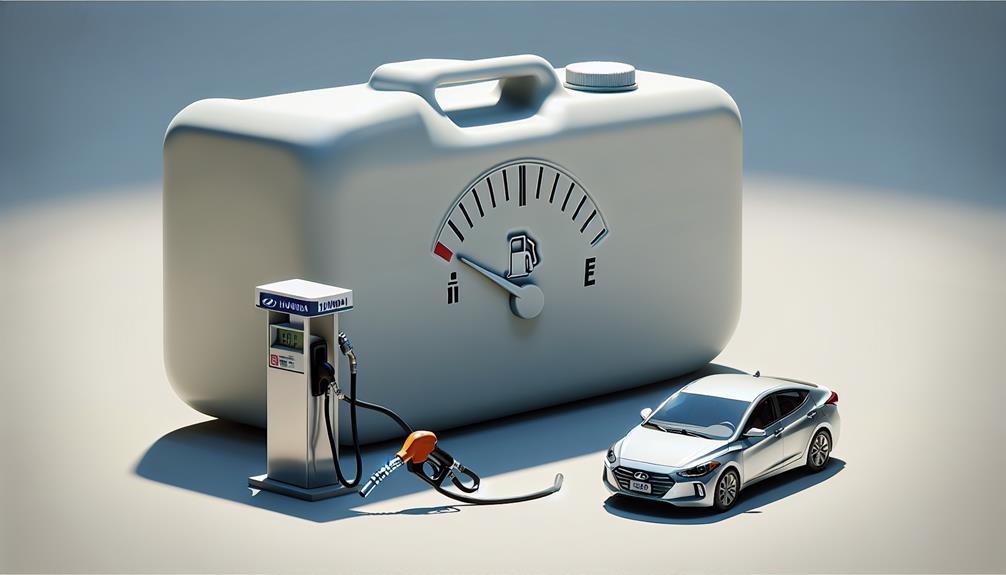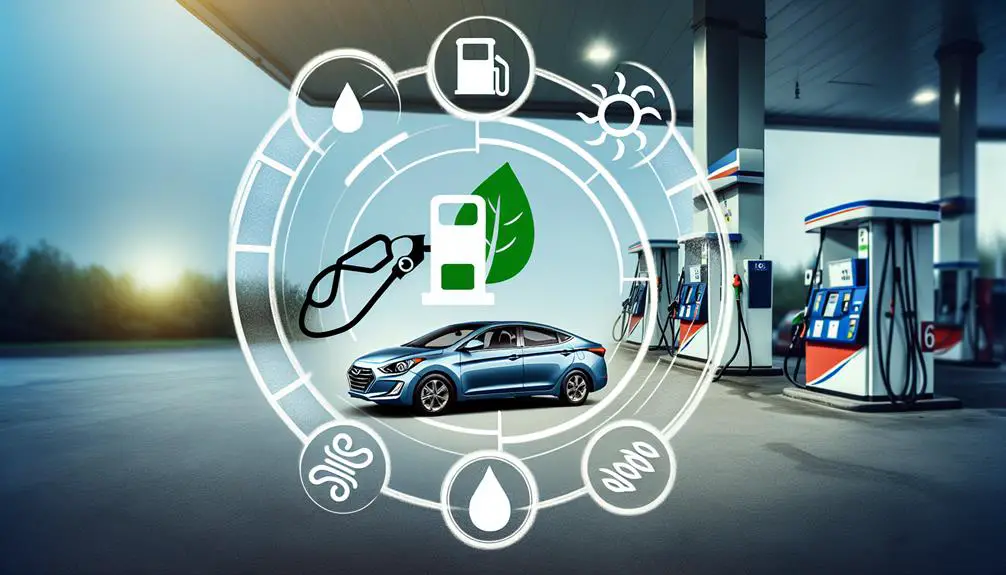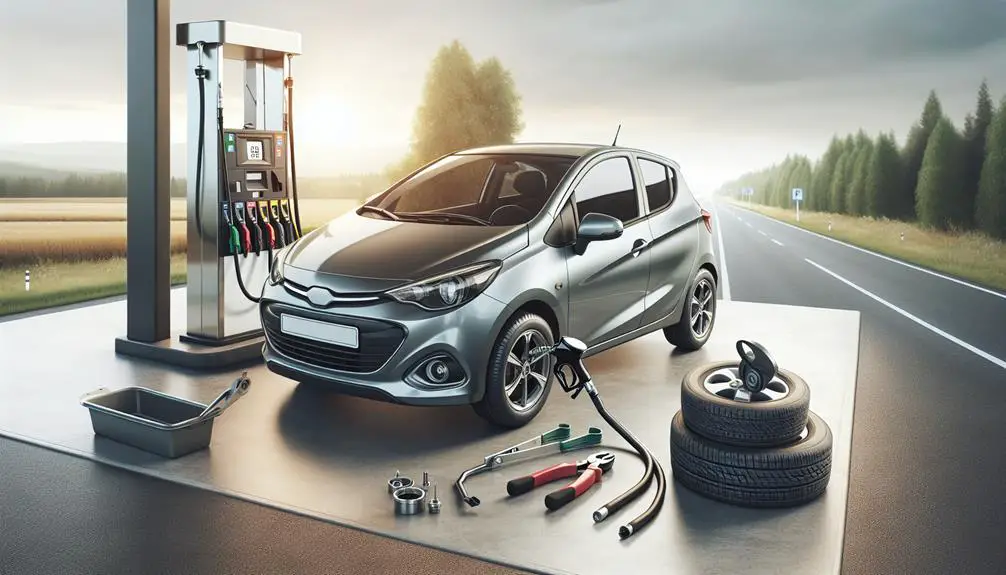The 2013 Hyundai Elantra has a fuel capacity of 12.8 gallons.
This figure is essential for calculating fuel efficiency and planning for long trips, potentially leading to savings at the pump.
Understanding Fuel Capacity

Fuel capacity is how much fuel, in gallons or liters, a vehicle's fuel tank can hold. For example, knowing the fuel capacity of a car like the 2013 Hyundai Elantra is important. It tells you how often you'll need to refuel and helps plan trips or budget for fuel costs.
This capacity indicates the car's range or how far it can go on a full tank, which is useful for those who travel a lot or want to reduce gas station visits. Additionally, fuel capacity can influence a car's design and how it drives. For the 2013 Hyundai Elantra, its fuel capacity is an important aspect of its performance and efficiency.
2013 Elantra Specifications
The 2013 Hyundai Elantra offers several features beyond its 13.2-gallon fuel capacity. This includes engine performance, spacious interior, safety features, and a reliable warranty. Here's a summary:
- Engine: 1.8L 4-Cylinder for responsive driving.
- Interior: Offers plenty of legroom.
- Safety: Equipped with 6 airbags.
- Fuel Capacity: 13.2 gallons for longer trips.
- Warranty: 5-Year/60,000-Mile for vehicle reliability.
These features make the 2013 Elantra a well-rounded car that's enjoyable to drive, comfortable, safe, and reliable.
Fuel Efficiency Insights

The 2013 Hyundai Elantra has a 13.2-gallon tank, which helps it use less fuel and allows for longer drives between needing to refuel. This is good for both saving money and being better for the environment. The Elantra is designed to use fuel efficiently, making it a good choice in its category.
This car gets an average of high 20s to mid-30s miles per gallon (MPG), which means it can go farther on less fuel. This is especially useful in saving on fuel costs. In cities, the MPG might be slightly lower because of frequent stops and starts, but it's still efficient.
The Elantra also offers a good balance between being fuel-efficient and performing well. It drives smoothly and responds well, making it a good choice for people who want to save money without sacrificing performance.
Planning Your Fuel Stops
Understanding that your 2013 Hyundai Elantra has a 13.2-gallon fuel tank helps plan fuel stops on long trips. Knowing the car's fuel capacity lets you plan refueling points in advance to avoid running low on gas. This is useful for trips with few gas stations.
Here's a guide for when to stop for gas based on your Elantra's fuel efficiency and tank size:
| Remaining Fuel (Gallons) | Action |
|---|---|
| Above 9 | Keep driving |
| 6 to 9 | Start looking for a gas station |
| 3 to 6 | Plan to stop for gas |
| Below 3 | Stop for gas as soon as possible |
This guide assumes it's better to refuel earlier than risk running out of gas, especially in areas with limited gas stations. Monitoring your fuel gauge and planning stops when the tank is about a quarter full will help ensure a smooth trip.
Maintenance for Optimal Mileage

To get the best mileage from your 2013 Hyundai Elantra, keep up with maintenance. Change your air filter regularly to help your engine run smoothly and save fuel.
Check your tire pressure every month and before long trips to avoid using extra fuel.
Use the oil grade recommended by the manufacturer and change it as scheduled to improve gas mileage by 1-2%.
Keep your engine well-tuned and fix any issues like bad oxygen sensors or old spark plugs to make your car more fuel-efficient.
Conclusion
Your 2013 Hyundai Elantra can hold about 12.8 gallons of gas. This is a good amount for a car like this. Knowing this can help you plan when you need to stop for gas, especially if you're going on a long trip.
Remember to keep your car well-maintained to get the best gas mileage. This means you can drive further on each gallon of gas.
Safe driving and enjoy your trip!